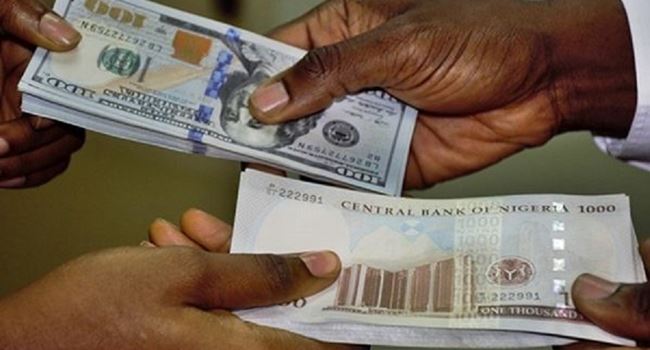According to FMDQ statistics, the Nigerian naira dropped 3.57% to increased foreign currency demand at the Investors and Exporters window. The amount of US dollar transactions at the official window increased on Wednesday as producers and importers reported increasing FX demand.
The spot currency rate was N771.59 per US dollar, according to FX statistics, as inflows into the official window are threatened despite increased crude oil prices on the global market. On Tuesday, the currency rate was N744.97 per greenback.
According to FMDQ data, the open indicative rate ended at N766.67 per dollar on Wednesday. According to analysts, the highest spot exchange rate recorded throughout the day’s trade was N799.90 to the dollar.
The naira sold for as low as 705 to the greenback within the day’s trading, according to FX traders notes. On Wednesday, a total of 65.30 million dollars was traded at the investors and exporters window. The sum translated to an increase of about 3% when compared with a total of 63.60 million dollars traded at the investors and exporters window on Tuesday.
In the parallel market, the naira exchange rate depreciated by 0.54% to N925 as demand for Invisibles by FX users increased. In a report, Fitch flagged the Central Bank of Nigeria’s (CBN) audited report on Nigeria’s net external reserves for transparency issues.
Fitch Flags Nigeria’s FX Reserves for Transparency Issue
At the close of business yesterday, the total balance in external reserves tracked below $34 billion amidst rising FX obligations. Last week, there were inflows into external reserves, which some analysts attributed to surging crude oil prices – especially Nigeria’s grade.
Crude oil prices rose in afternoon trading, with Brent crude up 0.31% to $90 per barrel and West Texas Intermediate (WTI) crude up 0.56% to $87 per barrel due to supply tight.
Traders assessed the impact of extended output cuts by Saudi Arabia and Russia against growing global energy demand concerns.














